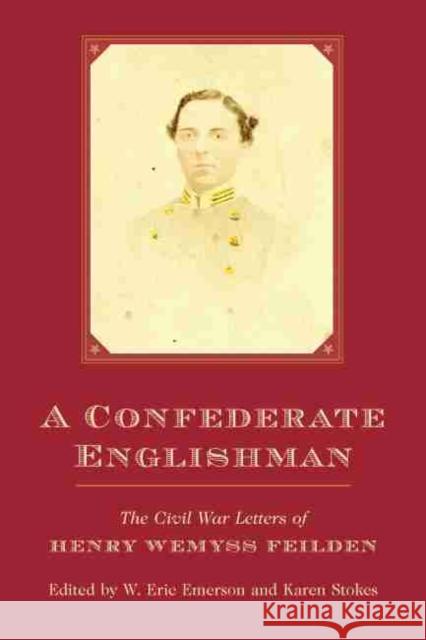A Confederate Englishman: The Civil War Letters of Henry Wemyss Feilden » książka
A Confederate Englishman: The Civil War Letters of Henry Wemyss Feilden
ISBN-13: 9781611171358 / Angielski / Twarda / 2013 / 216 str.
A Confederate Englishman presents for the first time the fascinating Civil War correspondence of Henry Wemyss Feilden (1838-1921), a young British officer who resigned his commission and ran the blockade to become a Confederate staff officer in Charleston, South Carolina. Editors W. Eric Emerson and Karen Stokes have compiled Feilden's letters to chart the history of his eventful career in the Confederacy from the time of his arrival in South Carolina in 1863 to the end of the war. Born the second son of the Baronet of Feniscowles, Feilden had experienced much before his arrival in America. As a young officer, he served during the Indian Mutiny and during the Second Opium War in China. His fascination and empathy with the Confederacy, however, propelled the young Englishman to risk his life to run the Federal blockade of Charleston. After traveling to Richmond, Virginia, the capital of the Confederacy, to obtain a commission as captain in the Confederate Army, he returned to Charleston to serve on the staff of General P. G. T. Beauregard, whom he greatly admired. During the war Feilden married a young South Carolinian, Julia McCord. His witty, vivid, highly readable, and sometimes romantic letters to her offer a compelling view into the operations of the military department headquartered in Charleston, conditions and events in and around the besieged city, and the heart of a man in love. A Confederate Englishman provides the insight and perspective of Feilden's experiences with operations in the large and vital Department of South Carolina, Georgia, and Florida during the war's final two years. After the war Feilden returned to England with his wife to resume his career in the British army, and later he became a noted Arctic explorer and naturalist. In addition to his Civil War correspondence, A Confederate Englishman features a selection of Feilden's letters from the early twentieth century that include his reflections on his extraordinary life, his service to the Confederacy, and his beloved wife of fifty-six years. Emerson's introduction examines Feilden's background and character and the reasons behind his choice to fight for the Confederacy. It also delves into Feilden's astute assessment of Confederate capabilities late in the war and his decision to benefit financially from blockade running.











